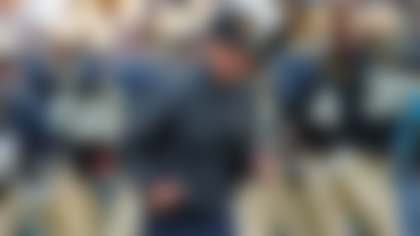The National Football League's (NFL) Scientific Advisory Board (SAB) today announced a four-year, $4 million award to fund a team of medical researchers led by the University of Wisconsin. The study will investigate the prevention and treatment of hamstring injuries for elite football players.
Hamstring injuries are the most common injuries suffered by NFL players and are the second-most burdensome injury in the league, with nearly 75% of such injuries resulting in missed time for NFL players.
This award is part of the league's multi-year effort to better understand and prevent lower extremity injuries, including soft tissue strains such as hamstrings. The findings from this project aim to determine an individual NFL athlete's propensity for hamstring strain injury and identify targets for injury mitigation, potentially reducing the injury burden on the player.
In addition to funding medical research, the league is following a data-driven approach to attempt to reduce the incidence of lower extremity injuries by tracking and analyzing turf systems and cleat performance, evaluating injuries to determine how to improve training regimens, and partnering with NFL Medical committees to study knee ligament injuries.
Researchers will combine state-of-the-art quantitative imaging, on-field biomechanics, and computational analytics to determine risk factors associated with initial and recurrent hamstring injuries and develop data-driven approaches to help individualize risk assessment. In addition, the study will aim to provide a roadmap for future research involving orthobiologics as a treatment for muscle strain injuries. Research will be led by Bryan Heiderscheit, PT, PhD, University of Wisconsin Orthopedics and Badger Athletic Performance, in partnership with David Opar, PhD, Australian Catholic University SPRINT Centre, and Silvia Blemker, PhD, co-founder of Springbok Analytics.
"At the league, we recognize the significant burden hamstring injuries have on our elite athletes year after year, and have dedicated resources to analyzing the occurrence and type of lower extremity injuries to better identify ways we can further reduce them," said Dr. Allen Sills, NFL Chief Medical Officer. "We're hopeful that through the data-based approach outlined by Dr. Heiderscheit and his team, this funding will enable them to develop scientifically-based strategies that will advance the health and safety of our players in the years to come."
"The persistent symptoms, slow healing, and a high rate of re-injury make hamstring strains a frustrating and disabling injury for athletes and a challenge for sport medicine clinicians to treat," said Dr. Bryan Heiderscheit, PT, PhD, FAPTA, Department of Orthopedics and Rehabilitation, University of Wisconsin-Madison. "To truly understand and reduce hamstring injury risk requires a study of an unprecedented size and scope. Thanks to the commitment and funding support provided by the NFL, our multi-disciplinary team of researchers can now undertake an innovative, data-driven approach to this study, and assist sports medicine clinicians in advancing strategies for injury prevention and interventions to return athletes to sport quickly and with reduced risk for re-injury."
This award concludes the Request for Proposals process initiated by the SAB in September 2020. It is the second round of medical research funding awarded by the SAB, founded in 2016 and chaired by Peter Chiarelli, U.S. Army General (Retired). Gen. Chiarelli formed a board of leading independent researchers, experts, doctors, scientists and clinicians to develop and lead a clear process to identify and support compelling proposals for $40 million in scientific research funded by the NFL. In 2018, following the recommendation of the SAB, the NFL awarded a total of $35 million to five projects for medical research primarily dedicated to neuroscience. To learn more about the NFL's Scientific Advisory Board, click here.



